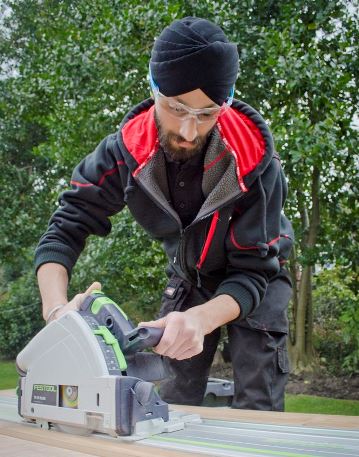Apprenticeships in England
Apply for apprenticeships in England
Carpentry is one of the oldest construction trades and is in high demand. Carpenters use natural materials (wood/timber) to install wooden fixtures and fittings. As a carpenter you could be installing doors, floors and furniture in new builds, renovating or refitting existing structures, building sets for film and theatre companies and much more.
£17000
-£45000
40-45
There are several routes to becoming a carpenter or joiner. You can gain the qualifications you need by doing a college course or an apprenticeship.
You should explore these routes to find which one is right for you. Although some options will list qualification requirements, many employers are more interested in people who are enthusiastic, willing to learn and able to follow instructions.
You may need a Construction Skills Certification Scheme (CSCS) card to work on a construction site.
Find out what the entry requirements are where you live.
Some colleges offer part-time, short courses in carpentry and joinery which could be a good way to find out if working with wood/timber is for you, especially if you have no experience or are thinking of changing career.
Find out what the entry requirements are where you live.
A construction apprenticeship in carpentry and joinery is a good way into the industry.
Apprenticeships are open to anyone over the age of 16. As an apprentice, you will be fully employed by your company and expected to work a minimum of 30 hours a week. Your time will be split between on-the-job experience and a college or training provider.
An intermediate carpentry and joinery apprenticeship takes around two years to complete. If your employer can provide you with the right experiences you could progress onto higher level qualifications or specialise in heritage and historical renovation, or furniture/cabinet making.
You might need GCSEs (including English and maths) to do an apprenticeship, but not all employers ask for formal qualifications.
Work experience is essential to gaining employment within the construction industry. You could gain this at school, or by working weekends and holidays with a company or relative who works in construction. Potential employers will always be pleased to see work experience listed on your CV.
Additional skills which may benefit anyone considering a job as carpenter include:
To become a carpenter you could:
You'll need:
To become a carpenter you could:
To become a carpenter you could:
As a carpenter you will be involved in the design, cutting, and building of furniture using different types of wood. You could be working on site, in clients homes, or in a workshop.
The job role of a carpenter involves the following duties:

Tibby Singh Chodha
Tibby Singh Chodha is a carpenter with Interserve
The expected salary for a carpenter varies as you become more experienced.
Salaries depend on location, employer, level of responsibility, and the amount of overtime worked.
* Salaries have been collected from multiple industry sources
Check out the latest carpenter vacancies:
As these are external websites, the number of vacancies related to your preferred role may vary. New opportunities will be posted as they come up.
Experienced carpenters can become supervisors, project managers or team leaders and earn a higher salary.
You could move into different areas within construction such as estimating or contract management, or specialise in an area like heritage restoration or building stage sets.
As a carpenter, you could start your own business or train others.
Explore the progression opportunities below